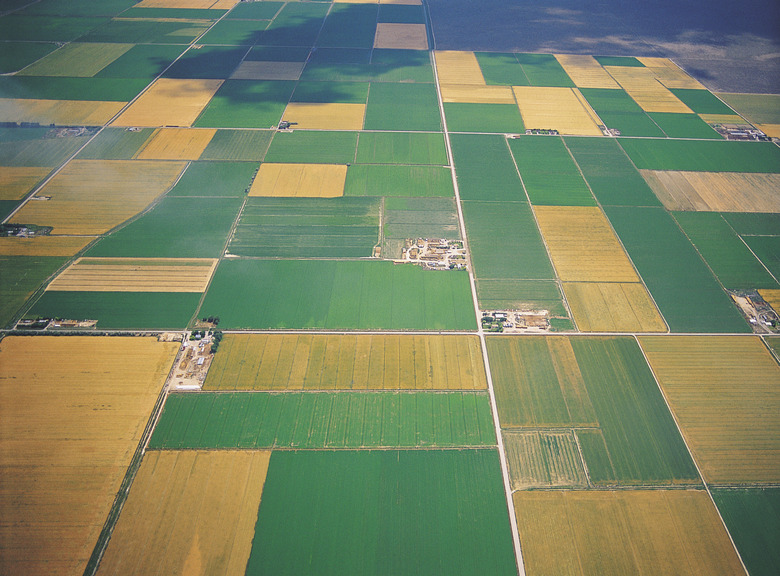How Influential Is Physical Geology On People?
The Earth's constituent materials and the processes that they undergo determine many aspects of human civilization. The planet's physical geology determines the natural resources available to a civilization and therefore has an impact on urban development, economies and public health. Furthermore, both gradual and sudden changes to a landscape affect the populations that inhabit it.
Natural Resources and Economic Life
Natural Resources and Economic Life
The physical geology of a region is defined by the composition of the Earth's crust at that region. As such, this determines the resources available to people living in that region. Physical geology can affect populations even when the resources are of no immediate use to the population. When a resource is valuable on the scale of global trading, this will have positive economic ramifications for a population. For example, Saudi Arabia has the most massive oil reserve in the world. This geologic fact bolsters the economic and political position of Saudi Arabia, and that, in turn, can affect the quality of life for its inhabitants.
Topsoil and Agriculture
Topsoil and Agriculture
Some regions are well-suited for farming based on the specific materials in the Earth's crust. The second-highest layer of the crust, called topsoil, is rich in nutrients and therefore good for growing crops. For example, the Great Plains region of the United States had a deep layer of topsoil that led to a proliferation of farming. Over time, however, excessive farming and natural processes such as erosion diminished the quality of the land. This led to the dust storms of the 1930s. Therefore, it is important to keep in mind both the relevance of physical geology to humans as well as the impact humans can have on physical geology.
Bedrock and Civilization
Bedrock and Civilization
The bedrock is the layer solid rock beneath a region's soil. The type and depth of the bedrock layer plays a large role in determining both building methods and water flow in a region. Architects and planners must take bedrock into consideration when designing the foundation of buildings. Foundations that are anchored to the bedrock are typically more stable than those that are not. If the bedrock layer is extremely deep or impenetrable, this may make foundations difficult or costly to construct. Additionally, the bedrock of a region determines aquifer formation and subterranean water flow. These factors must be considered when drilling wells and tracking the flow of waste water.
Catastrophic Events
Catastrophic Events
Physical geology encompasses the study of the Earth's tectonic plates and their movement. Seismic events such as earthquakes and tsunamis are the result of tectonic shifts. In this way, physical geology is tremendously influential on civilization. If a region is unprepared for such a disaster, the tolls on local life and society can be grave. For example, the 2004 Indian Ocean tsunami struck by surprise due to the lack of a tsunami warning system. Ultimately, the tsunami killed more than 227,000 people. If a region is at risk of suffering geologic disasters, preparation can help save lives. For example, the Federal Emergency Management Agency in the United States has a set of seismic codes intended to minimize earthquake damage to buildings. In earthquake-prone regions such as California, adherence to these codes can help minimize damage and casualties.
Exploitation
Exploitation
The influence of physical geology on people is not one-sided; civilization can have an impact on physical geology. For example, some types of construction and development can accelerate erosion. Furthermore, resources are depleted when people mine them. The interrelated nature of geology and civilization should always be considered when technological developments are at hand. If a practice involves the exploitation of physical geology and is not ecologically sustainable, it could ultimately have deleterious effects on the people who undertake it.
References
Cite This Article
MLA
Murmson, Serm. "How Influential Is Physical Geology On People?" sciencing.com, https://www.sciencing.com/influential-physical-geology-people-23942/. 24 April 2017.
APA
Murmson, Serm. (2017, April 24). How Influential Is Physical Geology On People?. sciencing.com. Retrieved from https://www.sciencing.com/influential-physical-geology-people-23942/
Chicago
Murmson, Serm. How Influential Is Physical Geology On People? last modified August 30, 2022. https://www.sciencing.com/influential-physical-geology-people-23942/
